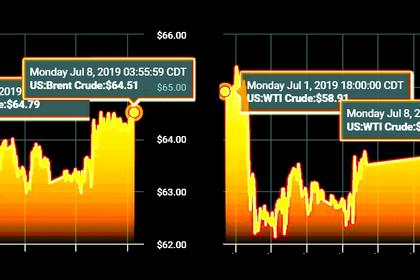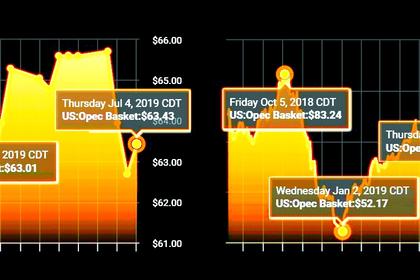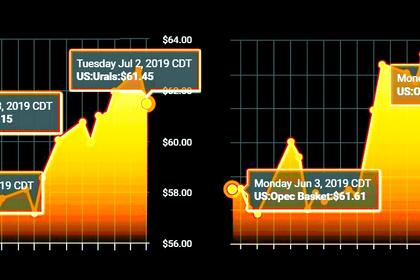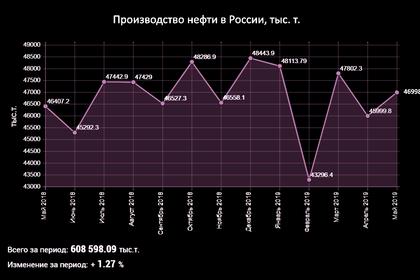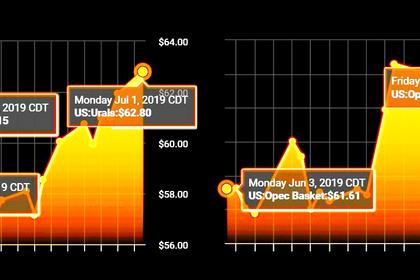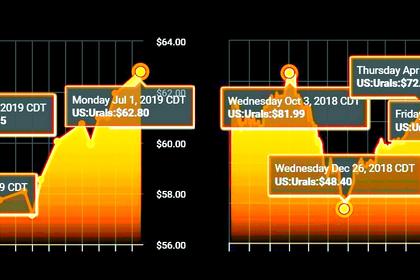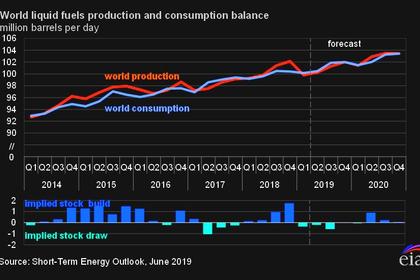
RUSSIA'S OIL PRODUCTION DOWN TO 10.79 MBD
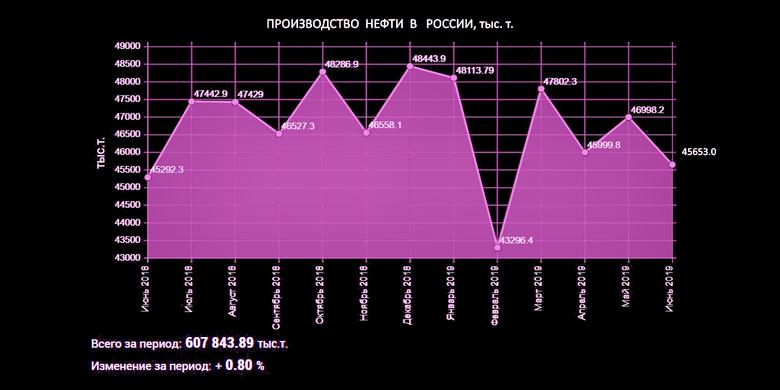
REUTERS - Russian oil production fell close to a three-year low in early July, as output was undermined by a row between Russian oil pipeline monopoly Transneft (TRNF_p.MM) and the country's biggest producer Rosneft (ROSN.MM).
Transneft curbed oil intake from Yuganskneftegaz, Rosneft's main upstream unit, the oil producer said, hurting production that has already been depressed by an oil contamination crisis.
Rosneft confirmed intake limits first reported by Reuters. Transneft also confirmed to local media it had capped the amount of oil received from Yuganskneftegaz.
Transneft said it put the restrictions in place after Rosneft sent oil to the pipeline network without clearly stating the destination for 3.5 million tonnes of crude as of July 1, local news agencies reported.
It said it had limited intake from Yuganskneftegaz by 0.5 percent of its annual production, TASS reported. The unit produces more than 70 million tonnes of oil annually, or 1.4 million barrels per day.
Industry sources said Russian oil output fell to 10.79 million barrels per day (bpd) in early July, lower than the level agreed under a deal on curbing supply reached with OPEC and other producers.
Transneft and Rosneft have been at loggerheads over efforts to resolve the problem of contaminated oil found in April in the Druzhba export pipeline to Europe. Supplies have only partially resumed since then, after weeks of disruption.
Transneft criticized Rosneft on Monday over its handling of the tainted oil issue, saying the oil producer had dragged its feet over setting up quality controls for its oil and had made unsubstantiated claims from the pipeline firm.
Rosneft said it had read Transneft's remarks with "regret".
The heads of the two firms, Rosneft's Igor Sechin and Nikolai Tokarev at Transneft, have often rowed in the past.
Despite formally denying any strife between their CEOs, the two companies have often clashed over issues such as oil transportation fees and Rosneft's rising oil exports to China.
Sechin, 58, has been close to President Vladimir Putin for two decades, while Tokarev, 68, is also a long-time ally. Putin, Tokarev and Sechin all worked in the city administration for St Petersburg in the 1990s after the collapse of the Soviet Union.
When asked to comment on the row, Kremlin spokesman Dmitry Peskov told reporters on a daily conference call that it was a "corporate matter".
Transneft transports 83% of Russian oil via its network, while Rosneft accounts for over 40% of Russian output.
An industry source said oil output at Yuganskneftegaz in West Siberia fell 30% during July 1-8 compared with the June average.
Rosneft said its oil production had declined due to a decision by Transneft to reduce intake of oil due to the contaminated oil issue, adding Transneft had imposed a "significant" cap on oil intake from Yuganskneftegaz.
"The enforced output reduction is related to Transneft's cuts of intake of oil into the system of trunk pipelines," a Rosneft spokesman said, adding that the pipelines were blocked by contaminated crude.
-----
Earlier:
